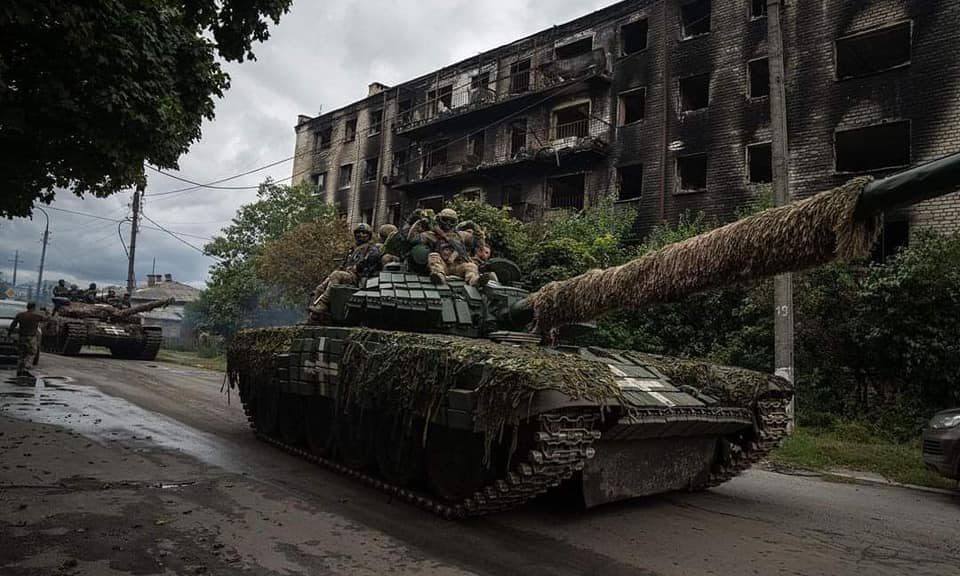As an industrialist nation transitioning to an information society and digital conflict, we tend to see technology and the information that feeds the technology as weapons – and ignore the few humans with a large-scale operational impact. Based on my outlook, I believe that we underestimate the importance of applicable intelligence – the intelligence of applying things in the correct order. The ability to apply is a far more important asset than the technology itself. Cyber and card games have one thing in common: the order in which you play your cards matters. In cyber, the tools are mostly publicly available; anyone can download them from the Internet and use them, but the weaponization of the tools occurs when used by someone who understands how to play them in an optimal order.
General Nakasone stated in 2017; “our best ones (coders) are 50 or 100 times better than their peers,” and continued “Is there a sniper or is there a pilot or is there a submarine driver or anyone else in the military 50 times their peer? I would tell you, some coders we have are 50 times their peers.”
In reality, the success of cyber and cyber operations is highly dependent not on the tools or toolsets but instead upon the super-empowered individual that General Nakasone calls “the 50-x coder”.
In my experience in cybersecurity, migrating to a be a broader cyber field, there have always been those exceptional individuals that have an unreplicable ability to see the challenge early on, create a technical solution, and know how to play it in the right order for maximum impact. They are out there – the Einsteins, Oppenheimers, and Fermis of cyber. The arrival of artificial intelligence increases the reliance of these highly able individuals – because someone must set the rules, the boundaries, and point out the trajectory for artificial intelligence at the initiation. This raises a series of questions. Even if identified as a weapon, how do you make a human mind “classified”?
How do we protect these high-ability individuals who, in the digital world, are weapons, not as tools but as compilers of capability?
These minds are different because they see an opportunity to exploit in a digital fog of war when others don’t see it. They address problems unburdened by traditional thinking in new innovative ways, maximizing the dual purpose of digital tools, and can generate decisive cyber effects.
It is the applicable intelligence (AI) that creates the process, the application of tools, and turns simple digital software in sets or combinations as a convergence to digitally lethal weapons. The intelligence to mix, match, tweak, and arrange dual purpose software. I want to exemplify this by using an example from the analog world, it is as you had individuals with the supernatural ability to create a hypersonic missile from what you can find at Kroger or Albertson. As a nation, these individuals are strategic national security assets.
These intellects are weapons of growing strategic magnitude as the combat environment have increased complexity, increased velocity, growing target surface, and great uncertainty.
The last decades, our efforts are instead focusing on what these individuals deliver, the application, and the technology, which was hidden in secret vaults and only discussed in sensitive compartmented information facilities. Therefore, we classify these individuals output to the highest level to ensure the confidentiality and integrity of our cyber capabilities. Meanwhile, the most critical component, the militarized intellect, we put no value to because it is a human. In a society marinated in an engineering mindset, humans are like desk space, electricity, and broadband; it is a commodity that is input in the production of technical machinery. The marveled technical machinery is the only thing we care about today, 2019, and we don’t protect our elite militarized brains enough.
At a systematic level we are unable to see humans as the weapon itself, maybe because we like to see weapons as something tangible, painted black, tan, or green, that can be stored and brought to action when needed. Arms are made of steel, or fancier metals, with electronics – we fail to see weapons made of sweet ‘tater, corn, steak, and an added combative intellect.
The WW II Manhattan Project had at its peak 125 000 workers on the payroll, but the intellects that drove the project to success and completion were few. The difference with the Manhattan Project and the future of cyber is that Oppenheimer and his team had to rely on a massive industrial effort to provide them with the input material to create a weapon. In cyber, the intellect is the weapon, and the tools are delivery platforms. The tools, the delivery platforms, are free, downloadable, and easily accessed. It is the power of the mind that is unique.
We need to see the human as a weapon, avoiding being locked in by our path dependency as an engineering society where we hail the technology and forget the importance of the humans behind. America’s endless love of technical innovations and advanced machinery is reflected in a nation that has embraced mechanical wonders and engineered solutions since its creation.
For America, technological wonders are a sign of prosperity, ability, self-determination, and advancement, a story that started in the early days of the colonies, followed by the Erie Canal, the manufacturing era, the moon landing and all the way to the autonomous systems, drones, and robots. In a default mindset, a tool, an automated process, a software, or a set of technical steps can solve a problem or act. The same mindset sees humans merely as an input to technology, so humans are interchangeable and can be replaced.
The super-empowered individuals are not interchangeable and cannot be replaced unless we want to be stuck in a digital war at speeds we don’t understand, being unable to play it in the right order, and have the limited intellectual torque to see through the fog of war provided by an exploding kaleidoscope of nodes and digital engagements. Artificial intelligence and machine learning support the intellectual endeavor to cyber defend America, but in the end, we find humans who set the strategy and direction. It is time to see what weaponized minds are; they are not dudes and dudettes but strike capabilities.
Jan Kallberg, Ph.D.






